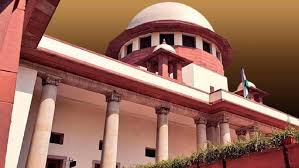Constitution of India, Article 136 – Criminal Procedure Code, 1973, Section 439 – Bail – Suppression of material fact – Offence under Section20(b)(ii)(C) of the Narcotic Drugs and Psychotropic Substances Act,1985 – First bail application of the petitioner dismissed by High Court though bail was allowed to co-accused by some other bench of High Court – SLP filed against the same – Second bail application filed by petitioner by claiming parity and the same dismissed by trial Court but bail allowed by High Court – Petition did not mention about pendency of SLP pending before High Court in which notice was issued – Bail allowed by High Court – Held that though considering the conduct of the petitioner, one of the option available was to cancel his bail, however, such an extreme step not taken by the Court in the case in hand- Appeal accordingly dismissed as in fructuous with a token cost of Rs.10,000/-, which shall be deposited by him with Mediation and Conciliation Centre, attached to Orissa High Court – Directed that to avoid any confusion in future it would be appropriate to mandatorily mention in the application(s) filed for grant of bail:
(1) Details and copies of order(s) passed in the earlier bail application(s) filed by the petitioner which have been already decided.
(2) Details of any bail application(s) filed by the petitioner, which is pending either in any court, below the court in question or the higher court, and if none is pending, a clear statement to that effect has to be made. This court has already directed vide order passed in Pradhani Jani’s case (supra) that all bail applications filed by the different accused in the same FIR should be listed before the same Judge except in cases where the Judge has superannuated or has been transferred or otherwise incapacitated to hear the matter. The system needs to be followed meticulously to avoid any discrepancies in the orders. In case it is mentioned on the top of the bail application or any other place which is clearly visible, that the application for bail is either first, second or third and soon, so that it is convenient for the court to appreciate the arguments in that light. If this fact is mentioned in the order, it will enable the next higher court to appreciate the arguments in that light.
(3) The registry of the court should also annex are port generated from the system about decided or pending bail application(s) in the crime case in question. The same system needs to be followed even in the case of private complaints as all cases filed in the trial courts are assigned specific numbers (CNR No.), even if no FIR number is there.
(4) It should be the duty of the Investigating Officer/any officer assisting the State Counsel in court to apprise him of the order(s), if any, passed by the court with reference to different bail applications or other proceedings in the same crime case. And the counsel appearing for the parties have to conduct themselves truly like officers of the Court. (Para 18 to 20, 22 and 23)
SUPREME COURT OF INDIA
2024 STPL(Web) 46 SC
[2024 INSC 46]
Kusha Duruka Vs. State Of Odisha
Criminal Appeal No. 303 of 2024 (Arising Out of S.L.P. (Crl.) No. 12301 of 2023)-Decided on 19-1-2024
https://stpllaw.in/wp-content/uploads/2024/04/2024-STPLWeb-46-SC.pdf







